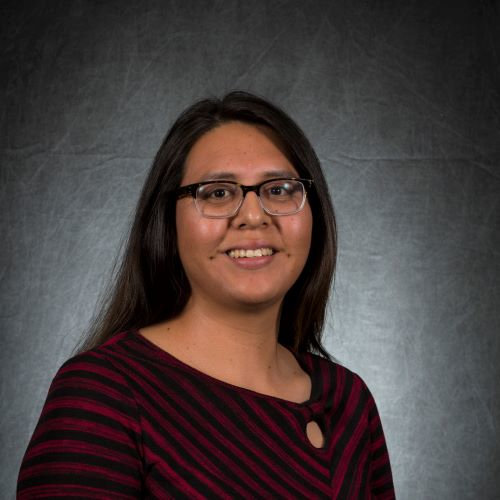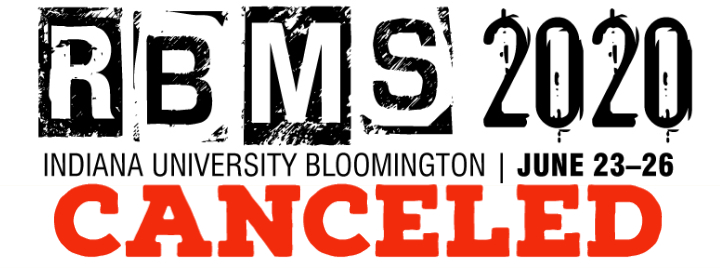The Rare Books and Manuscript Section conference is taking place at Indiana University Bloomington. We would like to share Indiana University’s First Nations Educational & Cultural Center Land Acknowledgement that was developed with campus partners and in consultation with Indiana University First Nations Leadership Ambassadors Council.
We wish to acknowledge and honor the Miami, Delaware, Potawatomi, and Shawnee people, on whose ancestral homelands and resources Indiana University was built.
Today, we benefit from the ancestral, traditional, and contemporary homelands of the Myaamia (Miami), Delaware (Lenape), Potawatomi and Shawnee people. In particular the City of Bloomington occupies the land ceded in the 1818 Treaty of St. Mary, specifically Cession 71. We recognize, support, and advocate for Indian nations, for historic Indigenous communities in Indiana, for Indigenous individuals and communities who live here now, and for those who were forcibly removed from their Homelands. By offering this Land Acknowledgement, we affirm Indigenous sovereignty and will work to hold the Association of College and Research Libraries – Rare Books and Manuscript Section members more accountable to the needs of American Indian and Indigenous peoples by shedding light on their power, resistance, and leadership.
Indigenous People in Indiana
The primary inhabitants of what is now modern day Indiana were Myaamia (Miami), Shawnee, Neshnabek (Potawatomi), and later the Delaware. The Myaamia are in the Algonquian language family. Indiana was home to several bands of Miami, including Wea and Piankashaw. The Myaamia strive to honor their ancestors by providing descendants education by means of revitalization efforts. The Myaamia protect, preserve, and manage significant historical properties, traditional cultural properties, and archaeological sites. The community curates significant cultural objects, archaeological artifacts, and historical records. The federally recognized nation in both Indiana and Michigan is the Pokagon Potawatomi. The remaining Myaamia, Shawnee, and Delaware tribes are spread North and West across Oklahoma, Wisconsin, Michigan, and Kansas. Today, students at the Indiana University benefit from First Nations Educational and Cultural Center (FNECC). FNECC is an academic and social center that helps American Indian students access college and teaches them about the original people and homelands that the university occupies. FNECC is a brilliant contemporary example of the power of Indigenous people as keepers of their cultural knowledge in higher education settings. The Indiana University students are modern stewards of the land and embody the power, resistance, and leadership necessary for the preservation of Indigenous knowledge.
Visit the Indigenous people and land acknowledgement resources for Indiana
https://mathersmuseum.indiana.edu/collections1/highlights.html
https://firstnations.indiana.edu/land-acknowledgement/index.html
https://firstnations.indiana.edu/index.html
https://www.in.gov/dnr/parklake/8616.htm
http://aisp.msu.edu/about/land/ http://www.miamiindians.org/
Native Land (digital)
- This interactive map offers users an introduction to Indigenous territories and languages around the world, as well as treaties affecting these tribal nations. https://native-land.ca/
Acknowledgement
 The American Library Association and the Rare Books and Manuscripts Section of the Association of College & Research Libraries would like to extend its thanks to Donavan Begay for her work in providing this land acknowledgement and overview. Donavan is a citizen of the Navajo Nation. She joined the Indian Health Board of Minneapolis in April 2018 as the communications specialist. She earned a Bachelor of Science degree from the University of Minnesota in family social science. She received a Master of Education in higher and post-secondary education from Arizona State University. For six years she served American Indian and Alaska Native college students in Minnesota and Arizona. In her free time, she enjoys social and racial justice projects. She loves audiobooks, foreign films, and enjoys being out in nature.
The American Library Association and the Rare Books and Manuscripts Section of the Association of College & Research Libraries would like to extend its thanks to Donavan Begay for her work in providing this land acknowledgement and overview. Donavan is a citizen of the Navajo Nation. She joined the Indian Health Board of Minneapolis in April 2018 as the communications specialist. She earned a Bachelor of Science degree from the University of Minnesota in family social science. She received a Master of Education in higher and post-secondary education from Arizona State University. For six years she served American Indian and Alaska Native college students in Minnesota and Arizona. In her free time, she enjoys social and racial justice projects. She loves audiobooks, foreign films, and enjoys being out in nature.
The above information may be used by libraries, librarians, and other educators for nonprofit training and educational purposes. All such uses should include the notice “Content used by permission of the American Library Association, Office for Diversity, Literacy and Outreach Services”. If you have any questions or feedback, please feel free to email our office at diversity@ala.org.
